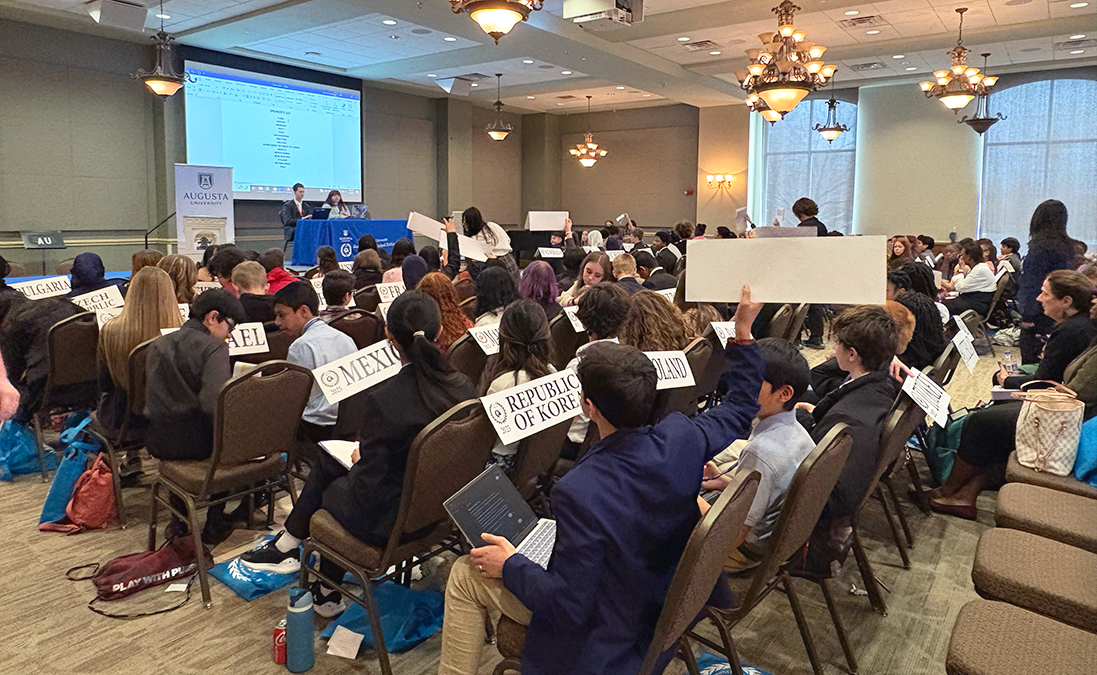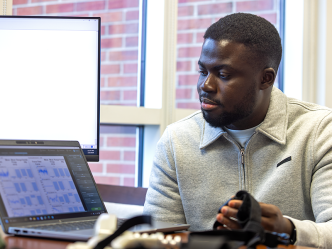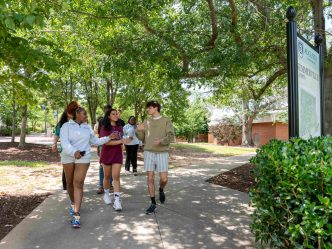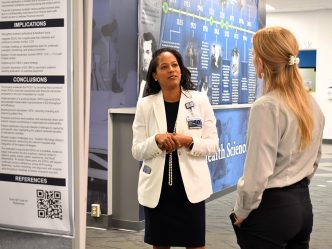About 130 students from seven middle schools across Georgia recently poured into Augusta University’s Jaguar Student Activities Center to debate, negotiate and represent their selected countries at the university’s 11th annual Junior Model United Nations Conference. This year’s theme: global women’s rights.
That was the widespread issue the Regular Committee focused on tackling – energy was high and nerves were palpable as the student delegates representing 59 countries took turns speaking at the podium and arguing their cases at the simulated General Assembly meeting.
The conference was hosted by AU’s National Model UN class and sponsored by the Department of Social Sciences in the Katherine Reese Pamplin College of Arts, Humanities, and Social Sciences.
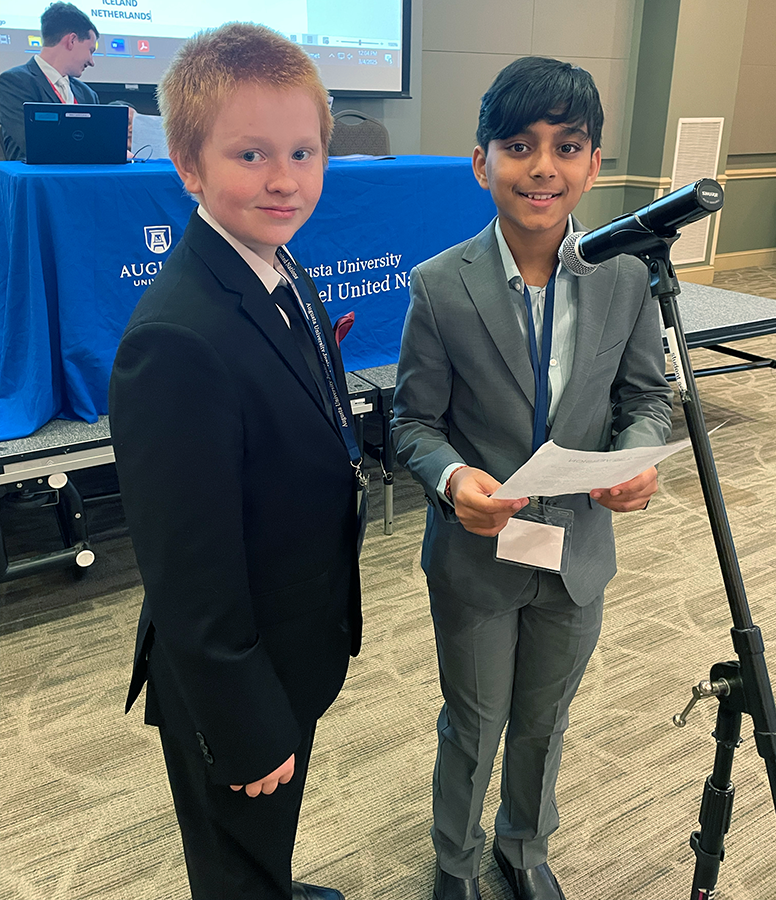
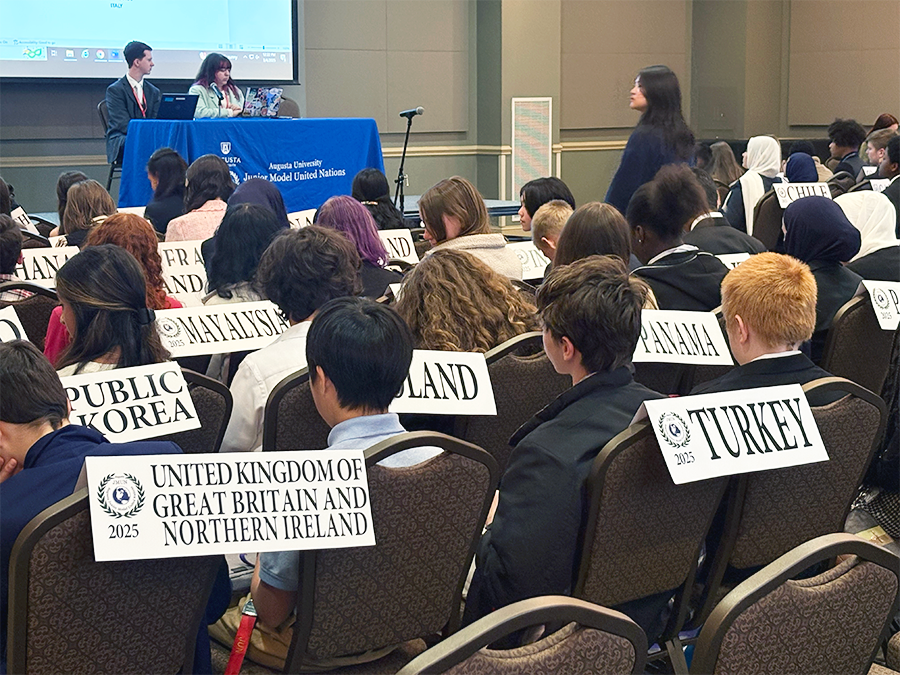
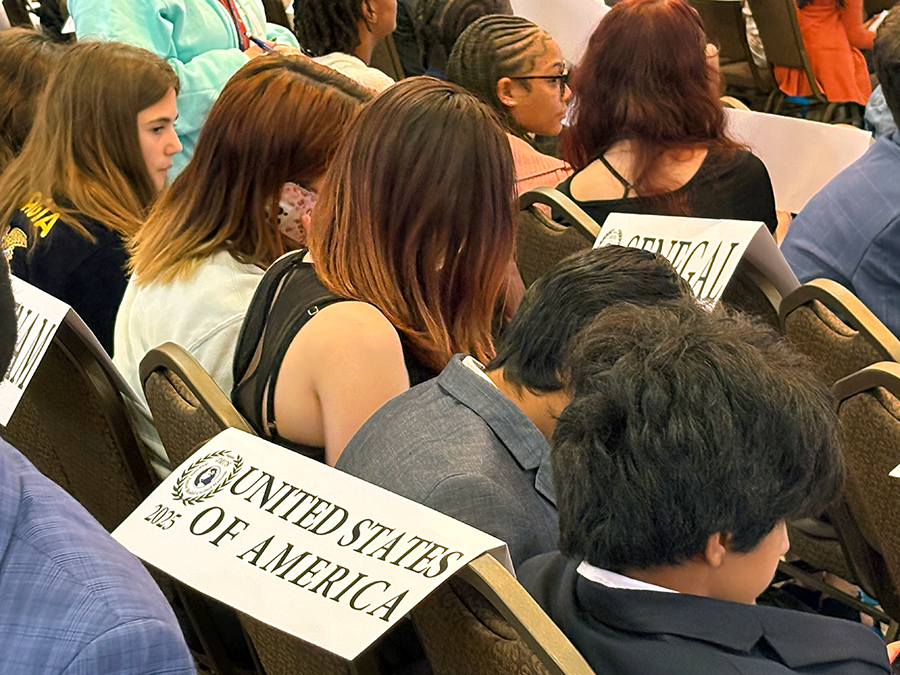
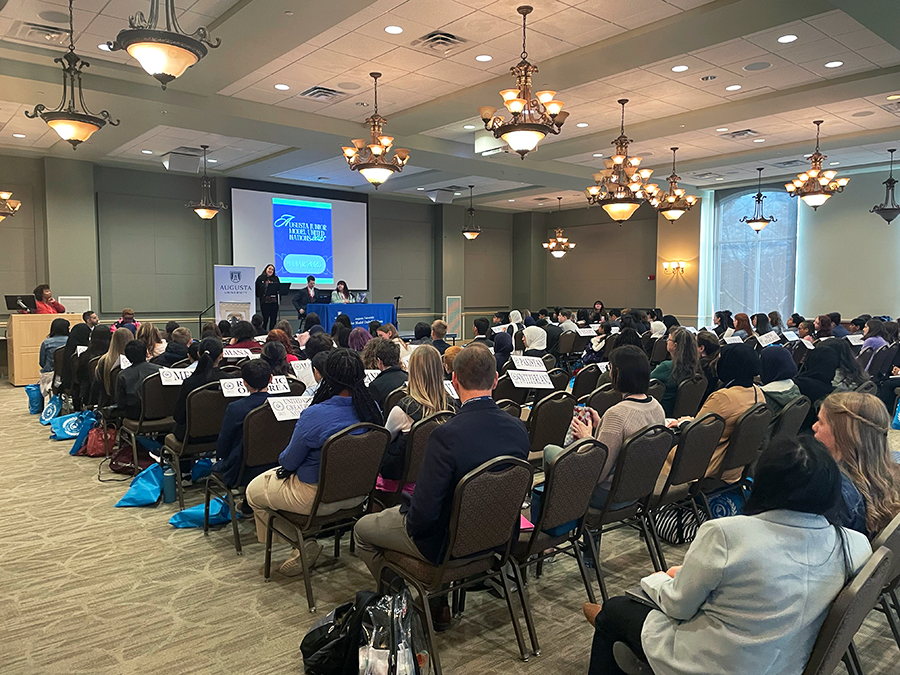
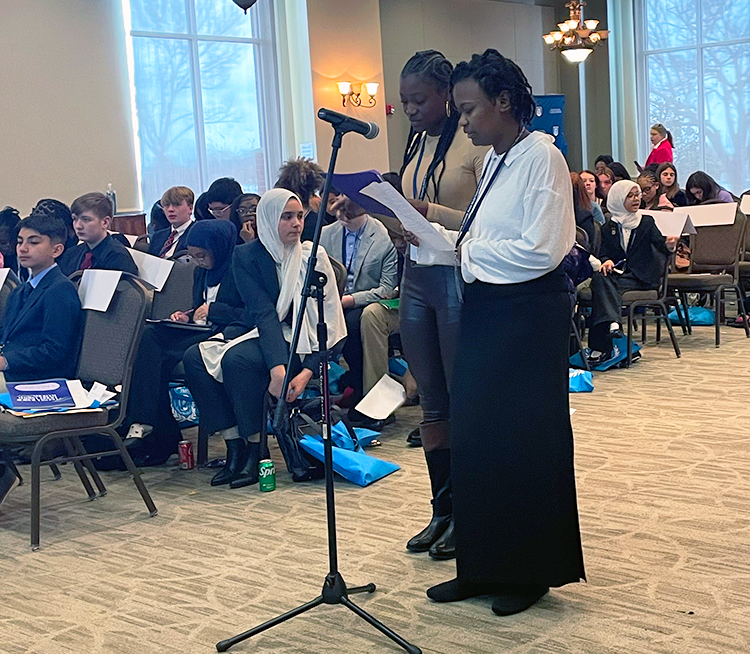
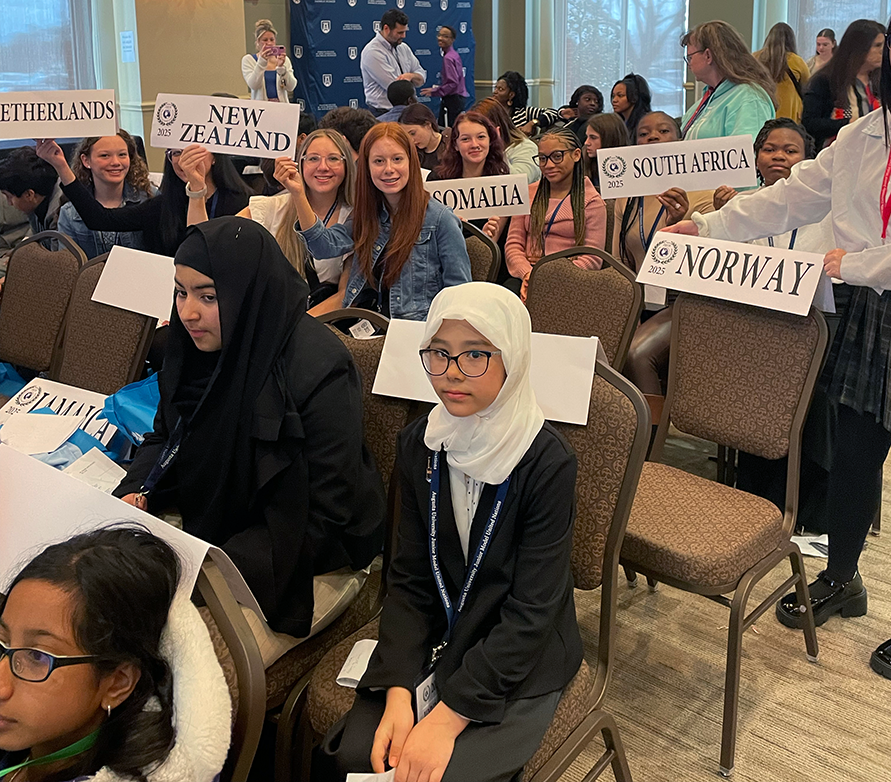
“They’re using Robert’s Rules of Order, and they’re learning how a formal meeting takes place. They’re giving formal speeches, so they’re practicing public speaking. They’re negotiating with each other because they’ve been given draft resolutions,” said Nadia Jilani-Hyler, a senior political science lecturer and the director of Model UN at AU.
A handful of the university’s Model UN students served as facilitators who drafted resolutions for the middle schoolers to use. One resolution was “empowering women and girls,” and another was “eliminating violence against women.” The group voted on covering the issue of empowering women and girls first and worked on amending and passing the finalized resolution.
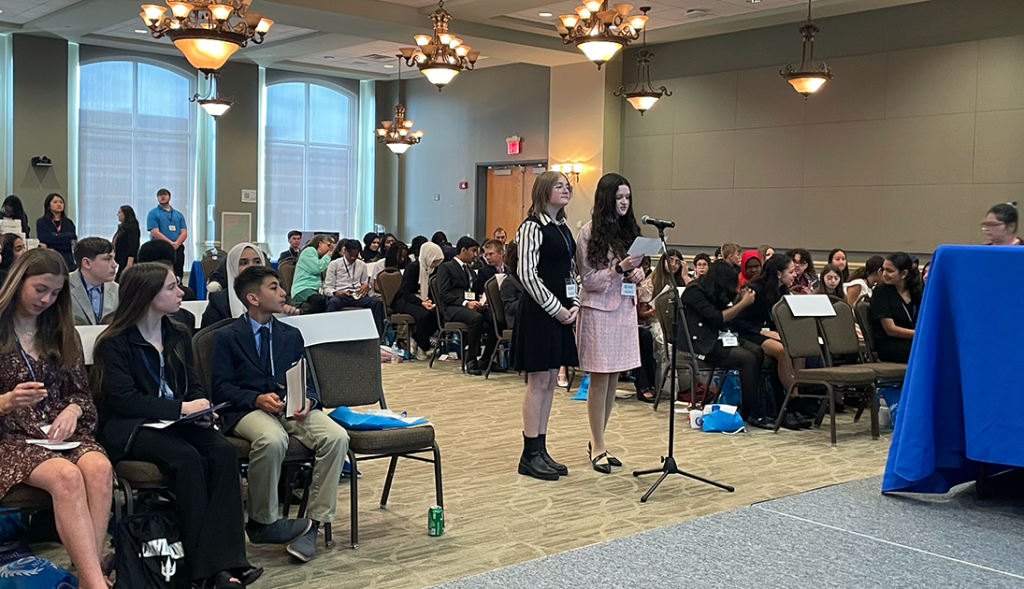
“They learn about why different countries have different values and expectations, and they’re also learning about the impacts of policies in different countries and how they work,” Jilani-Hyler said. “So expanding their knowledge, not just from the United States and not just from western countries that they might have visited, but to other countries in the world they had never heard of before they got assigned to that country.”
The students were able to submit requests for the countries they wanted to represent, and two delegates were assigned to each country on a first-come-first-served basis.
The premise of MUN is to expose students to diplomacy, international relations, current world issues and the UN itself.
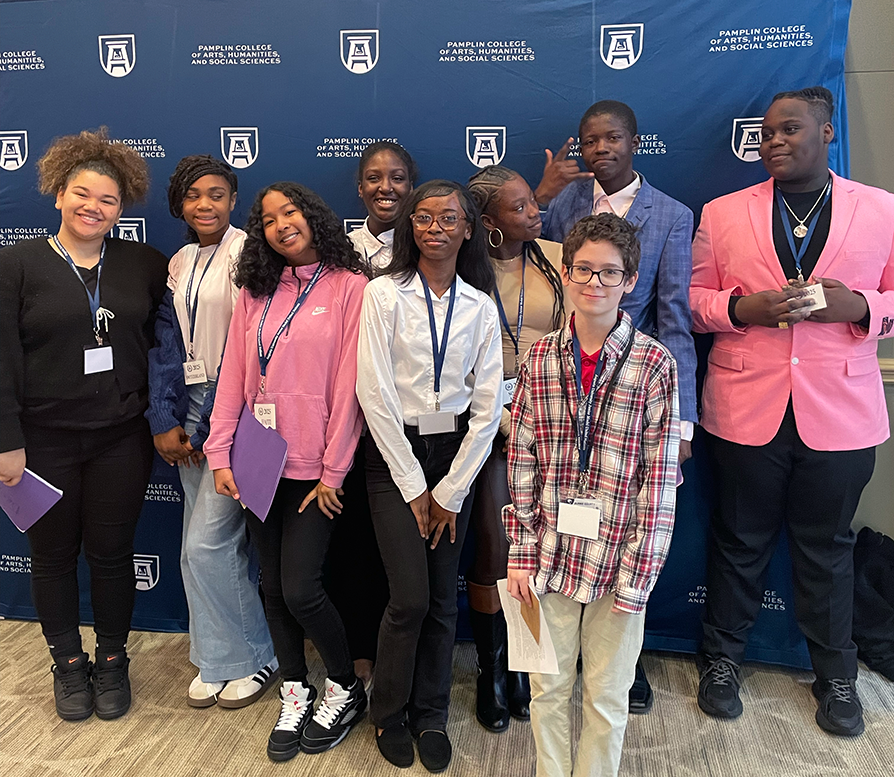
Conferences normally last a whole weekend, but this one-day conference was plenty of time for the students to practice their public speaking, negotiation, teamwork, writing and problem-solving skills.
“I’m really impressed,” Jilani-Hyler said. “Usually we don’t get through the first resolution and onto topic two – they’re just running through it really quickly, and I think that’s a testament to the faculty preparing them for the conference. Really well-prepared this year.”
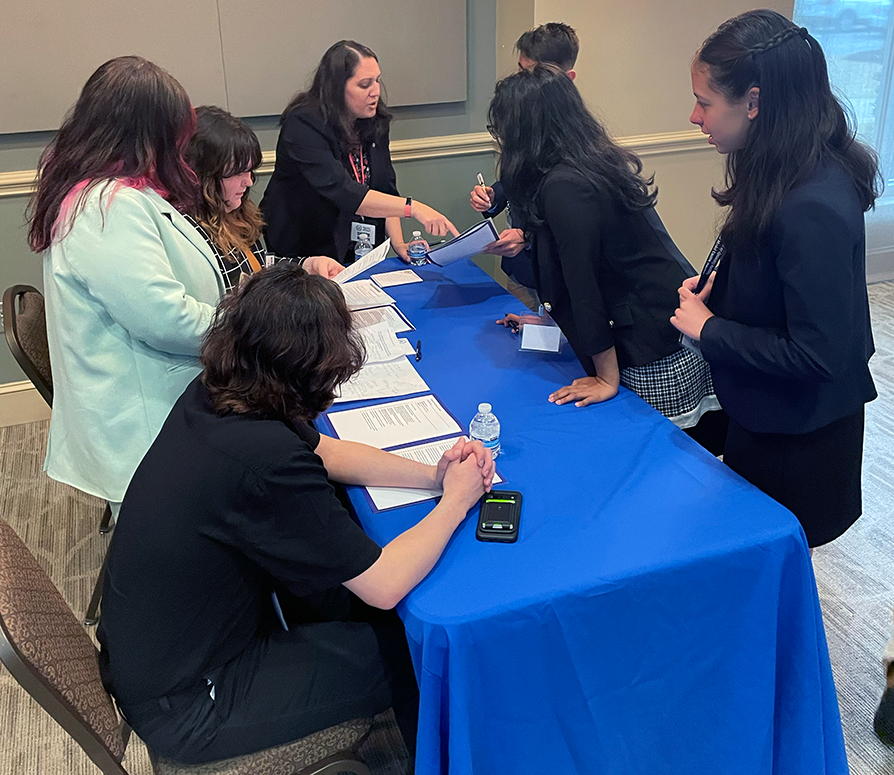
In addition to the Regular Committee was a Security Council, a much smaller group of select students who were ushered into a separate room to solve an international high-stakes crisis simulation. Unlike the Regular Committee, students in the Security Council didn’t have time to prepare beforehand.
This year’s crisis was a terrorist organization kidnapping young women and demanding billions of dollars in ransom while cutting off supplies to Silicon Valley.
“Me and six other people found a really good solution,” said Nathan O’Connor, a seventh grader at Oak Hill Middle School who was part of the Security Council. “Basically, China surrounds Nigeria’s borders, then there’s some negotiation stuff. Algeria takes the hostages through armed transport into their country, and then they negotiate with Algeria to free the Silicon Valley.”
It’s O’Connor’s first year in JMUN, and he believes he can apply the skills he’s learned to his future career.
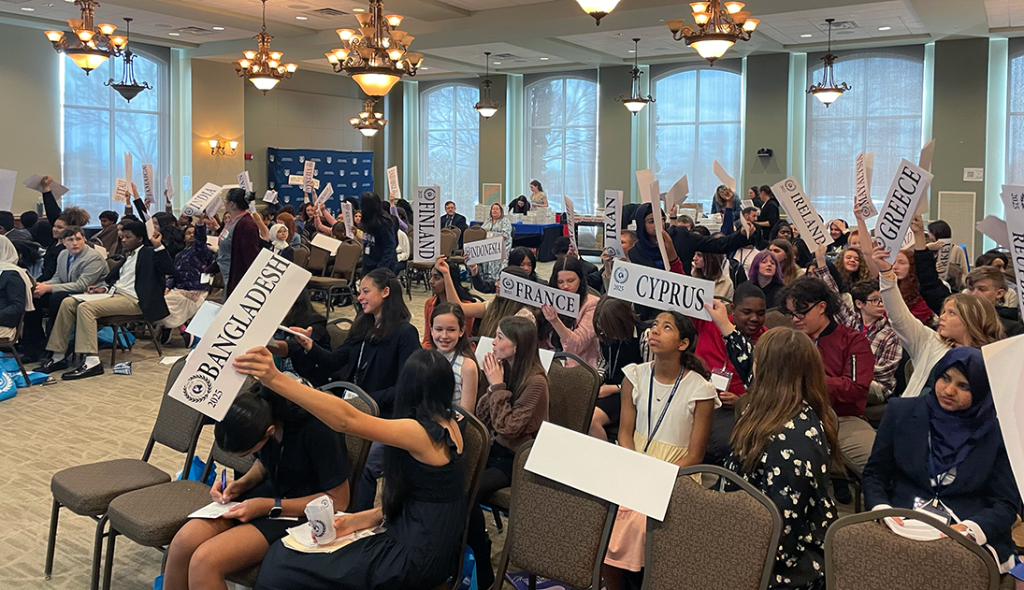
“I definitely think you could use problem solving in any career, and I actually have thought about a lot of careers, mostly what my dad does,” he said.
Security Council facilitators were impressed with how the students handled the situation, especially at such young ages.
“They’ve been doing very well. It’s a small group, but they’ve been interacting great. They get into good debates with each other and bring out great ideas,” said David Evans, the Security Council chair. “So far, I have had zero notes about any of them. They’ve been very impressive, and I don’t know if I would be that good at this at their age.”
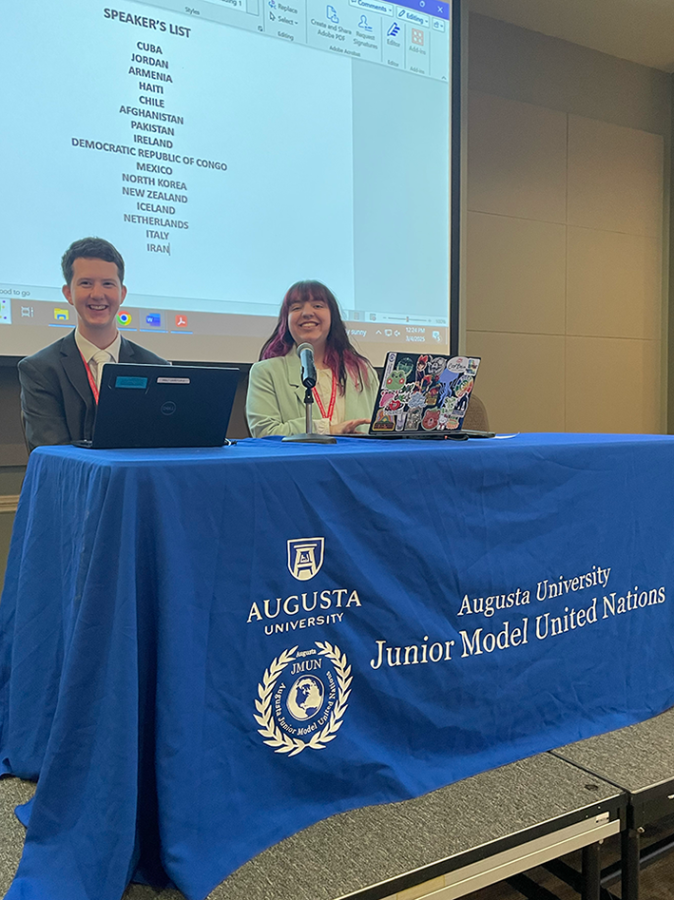
Evans is a third-year political science student at AU. This is his second year taking the Model UN course, which has given him experiences and opportunities he said he wouldn’t have had otherwise and helped prepare him for his dream job.
“I want to be a lawyer, and I want to help protect civil rights and civil liberties for the general public. And I think being able to see the exact impact that these decisions have on people has just been so rewarding for that specific career,” Evans said. “And there are tons of careers I feel like you can apply the United Nations to, and that ability to interact with so many different people, so many unique ideas. It can be helpful for any career.”
He hopes that this experience gives the kids the confidence they need to excel in uncomfortable situations, and inspires them to pursue goals they’re passionate about.
“The ability to debate on an equal playing field and know that your voices are being heard by adults and by people from all across Georgia is just incredibly valuable and motivating,” he said. “I know that each of these kids is going to leave knowing they did something that made a genuine impact on a lot of different people and had the full attention of over 100 of their peers, and that’s just very rewarding.”
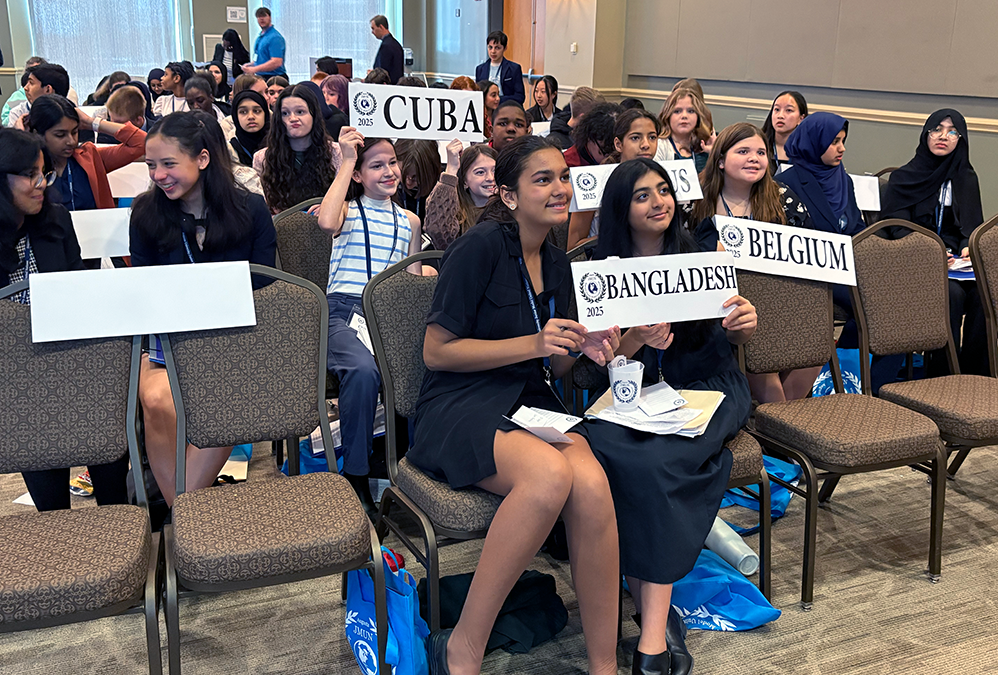
The Augusta University Model UN students will be flying to New York City for their conference April 12-19. Evans has already attended before, but it will be the first time for a few of the students. Jilani-Hyler thinks facilitating the JMUN conference has helped ease some of the stress.
“They’re getting a feel for what they’re going to be doing in New York, and they are also getting to see middle schoolers do what they’re going to have to do, which makes it a little bit less scary,” Jilani-Hyler said. “Having to stand up and speak in front of 100 people is pretty nerve-wracking for most people, but if middle schoolers can do it, then so can we.”
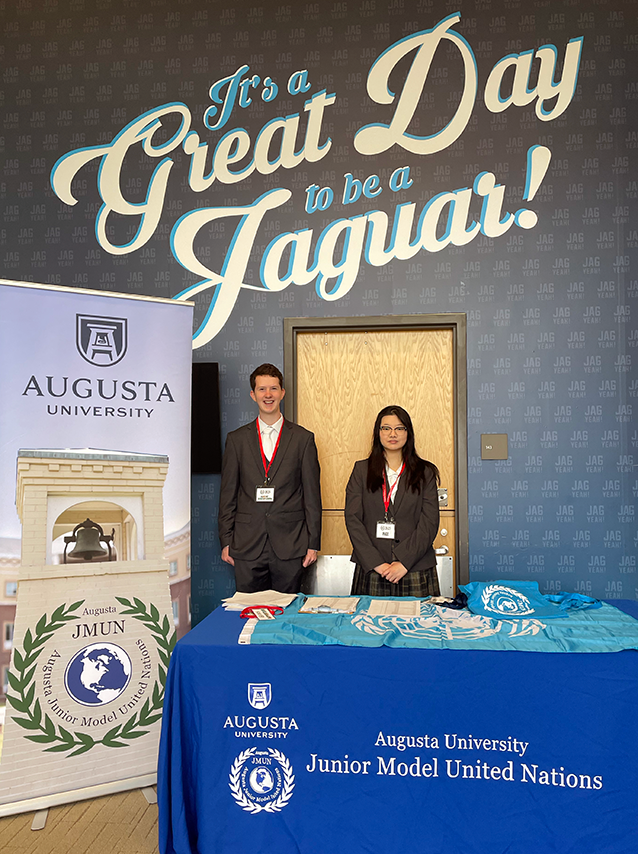
And while they’re in New York, they will already be planning for next year’s JMUN.
“This is one of the most rewarding things I do every year. It’s very stressful for me to be in charge, but when it’s over, I’m just beaming. I’m just so happy and relieved that we got to see these students be amazing and do incredible things, really care about the world and try to make the world a better place, and learn all these topics and skills about different countries and how to communicate with each other better,” Jilani-Hyler said. “So yeah, this is the highlight of my year in a lot of ways.”
 Augusta University
Augusta University
